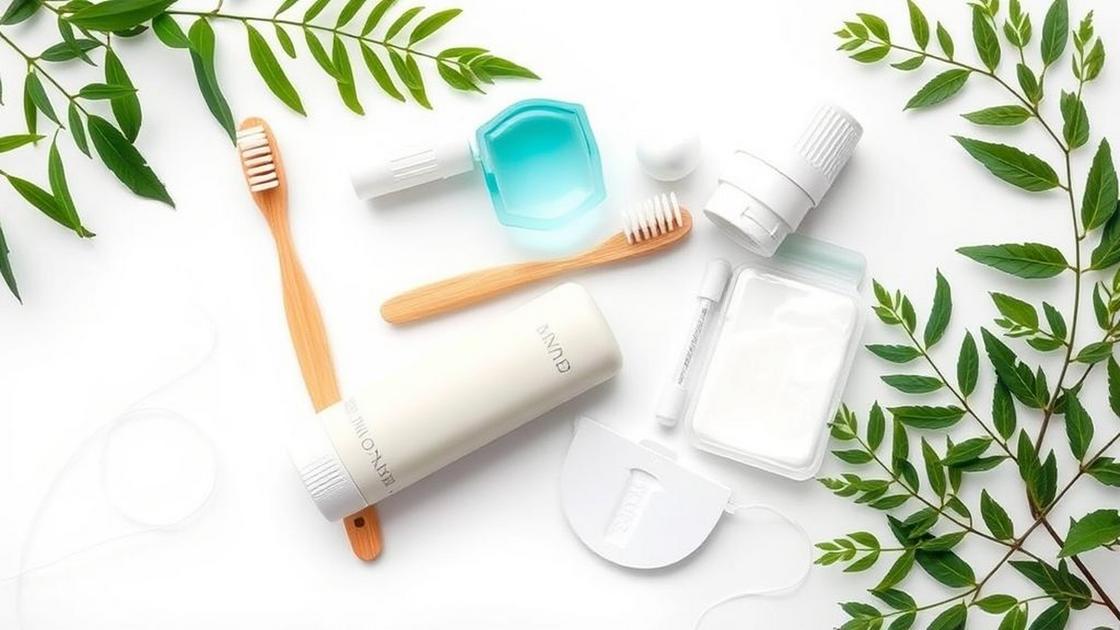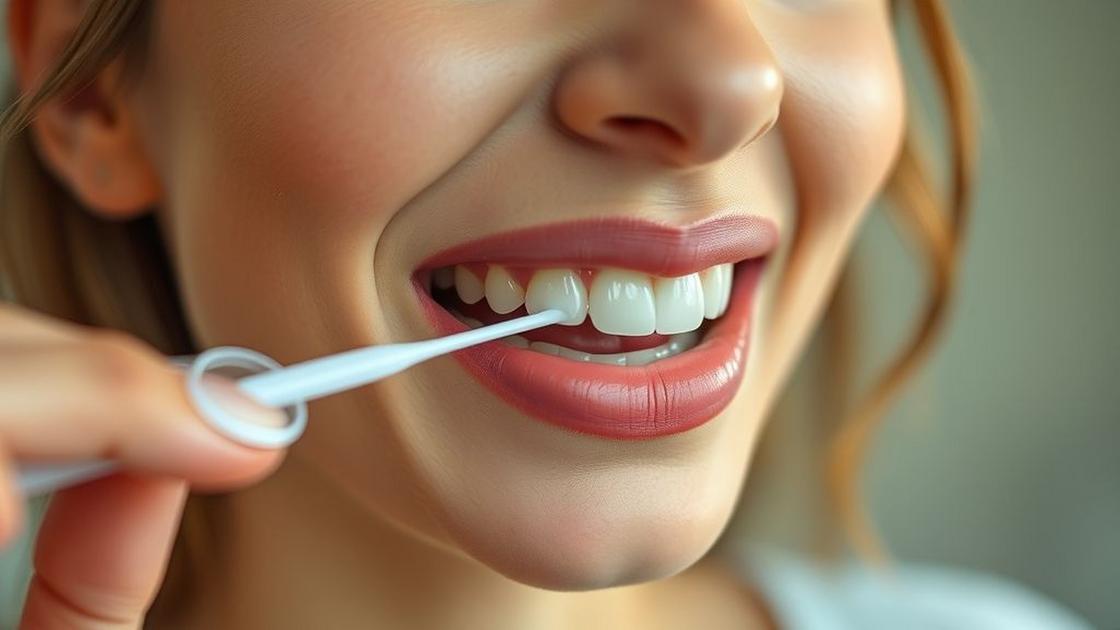Have you ever considered the power of nature in dental care? How to use herbs for dental care at home is a topic that resonates with many. Women over 30 often find themselves juggling health concerns like gum issues, sensitivity, and the quest for a whiter smile. Embracing herbal remedies can bring relief and a sense of empowerment. In this article, we’ll uncover the secrets of using herbs effectively, helping you achieve a radiant smile without the harsh chemicals.
The Benefits of Herbal Remedies for Oral Health
Herbs have been used for centuries to support oral health. These natural remedies are known for their soothing and healing properties. Some benefits of using herbs include:
- Antimicrobial Effects: Many herbs can kill bacteria and reduce plaque buildup, protecting your gums and teeth.
- Anti-inflammatory Properties: Herbs can soothe inflammation and irritation in the mouth, helping to alleviate discomfort.
- Natural Flavoring: Herbs like mint can freshen breath without the need for artificial flavoring.
- Ease of Use: Many herbs can be easily incorporated into daily dental care practices at home.
Incorporating herbs into your dental routine can promote overall oral wellness and provide a gentle, holistic approach to dental care.
Top Herbs for Dental Care
There are several herbs particularly noted for their dental care benefits. Understanding their properties can help you choose the right ones for your needs:
- Clove: Known for its analgesic and antibacterial properties, clove has been used for toothaches and oral infection.
- Tea Tree Oil: This powerful oil is highly antimicrobial and may help combat oral bacteria and fungi.
- Peppermint: Not only refreshing, but peppermint can also help relieve digestive issues and freshen breath.
- Calendula: With anti-inflammatory and healing properties, calendula is excellent for soothing irritated gums.
- Sage: Sage can help to reduce bacteria and is also used to ease sore throats and mouth ulcers.
How to Prepare Herbal Mouth Rinses
Herbal mouth rinses are simple to make and can enhance your oral care routine. Here’s how to prepare them:
- Select Your Herbs: Choose herbs based on your needs. For example, if you want to soothe gums, consider calendula or sage.
- Prepare the Infusion: Boil water and steep the herbs for about 10-15 minutes.
- Strain the Mixture: Using a fine mesh strainer, remove the herb remnants from the liquid.
- Add Optional Ingredients: You can add a few drops of tea tree oil or a spoonful of honey for added benefits.
- Cool and Store: Allow the mouth rinse to cool before using. Store it in a clean bottle; it should keep in the fridge for up to a week.
Swish the rinse in your mouth for 30 seconds daily to maintain oral hygiene.
Using Clove Oil for Toothaches
Clove oil is a popular choice for relieving tooth pain. Here’s how to use it effectively:
- Choose High-Quality Clove Oil: Ensure you have pure clove oil for maximum benefits.
- Apply Sparingly: Use a cotton ball or clean finger to dab a small amount directly onto the affected tooth or gums.
- Gently Massage: Lightly massage the area to help disperse the oil and relieve pain.
- Repeat as Needed: You can use clove oil 2-3 times a day until the pain subsides.
Clove oil can be incredibly effective, but should be used cautiously to avoid irritation.
Natural Toothpaste Alternatives
If you’re looking to switch from commercial toothpaste, here are some natural alternatives:
- Baking Soda: A gentle abrasive that can help remove stains and neutralize acids in the mouth.
- Coconut Oil: Known for its antimicrobial properties, coconut oil can also serve as a base for DIY toothpaste.
- Activated Charcoal: This can help whiten teeth and remove toxins; however, use it sparingly to avoid enamel damage.
- Herbal Powders: Mixing dried herbs like mint, sage, or cinnamon can create a flavorful and effective toothpaste substitute.
To use these, simply mix a small amount with water into a paste, apply it to your toothbrush, and brush as usual.
Herbal Teas for Gum Health
Drinking herbal teas can also contribute to improved gum health. Consider these options:
- Chamomile Tea: Known for its calming effects, chamomile also has anti-inflammatory properties, making it great for sore gums.
- Green Tea: Rich in antioxidants, it can reduce inflammation and support overall oral health.
- Ginger Tea: This can aid digestion and has antibacterial qualities beneficial for oral health.
Steep these teas as desired and enjoy them warm or cool. Regular consumption can enhance gum health over time.
Peppermint for Fresh Breath
Peppermint is not just refreshing; it has several benefits for oral care:
- Natural Breath Freshener: Its menthol content gives an instant freshness that masks bad breath.
- Digestive Aid: Reduces bloating and indigestion, which can indirectly affect oral freshness.
- Antibacterial Properties: Helps reduce the bacteria in the mouth, contributing to overall health.
Chew on fresh mint leaves or drink peppermint tea regularly to keep your breath fresh and your mouth healthy.
DIY Herbal Tooth Powder
Making your herbal tooth powder is easy and can be an exciting part of your dental care routine:
- Gather Ingredients: Consider using baking soda, turmeric, cinnamon, and dried mint.
- Mix Ingredients: Combine equal parts in a bowl. You can adjust the quantities based on taste preferences.
- Store Properly: Transfer the mixture into a clean, dry jar with a lid for easy access.
To use, simply dampen your toothbrush and dip it into the powder before brushing. It can give a refreshing and unique twist to your dental hygiene!
Aromatherapy and Dental Wellbeing
Aromatherapy can also play a role in supporting dental health. Here’s how:
- Essential Oils: Oils such as peppermint and tea tree can be used in a diffuser or diluted and applied to the skin around the jawline.
- Relaxation Techniques: Practicing stress-relief methods such as meditation can reduce teeth grinding during sleep.
- Herbal Hair Rinses: Incorporating herbs into your beauty routine can contribute to overall stress reduction and improve oral health indirectly.
Embrace the calming effects of aromatherapy while taking care of your oral health.
Incorporating Herbs into Your Daily Routine
Integrating herbs into your daily life doesn’t have to be complicated. Here are some simple ways to get started:
- Start with Culinary Herbs: Add fresh herbs to your meals, like basil, mint, or cilantro.
- Drink Herbal Teas: Swap out your regular tea for herbal varieties to enjoy health benefits.
- Herbal Infused Oils: Make your herbal-infused oil for cooking or applying topically.
- DIY Products: Start creating your natural dental care products using herbs.
Small changes can lead to significant improvements in your oral health and overall well-being.






